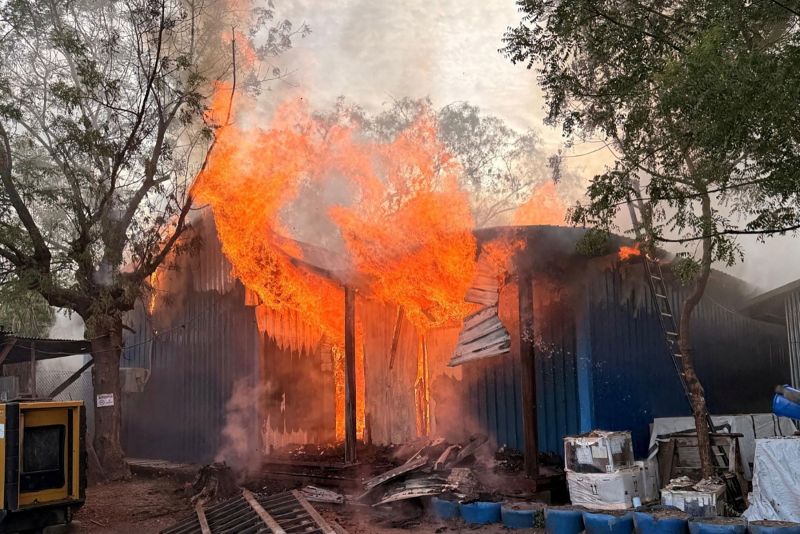
Hospital bombing kills 7 amid fears South Sudan is returning to civil war
At least seven people were killed and 20 injured in an attack on a hospital and market in South Sudan on Saturday, a medical charity has said, as fears mount that the country could return to all out civil war.
Doctors Without Borders, also known as Médecins Sans Frontières (MSF), condemned the early morning attack on its hospital in Old Fangak, Jonglei State, in the northeast of the country.
MSF said helicopter gunships dropped a bomb on their pharmacy and fired on the town for 30 minutes.
The pharmacy burned to the ground and all medical supplies were lost in the attack, destroying the last remaining hospital in the area. A nearby civilian market was also bombed by a drone, according to MSF.
“This attack has severely compromised our ability to provide lifesaving care in Old Fangak – the only hospital serving over 110,000 people in the area,” MSF said.
It’s not immediately clear why the hospital was targeted, or by whom, but the attack comes amid fears the country is on the brink of returning to civil war amid growing tensions between South Sudan’s President Salva Kiir and Vice President Riek Machar – who lead rival factions in a unity government formed following a peace deal in 2018. Machar was arrested in March and accused of trying to stir up a rebellion.
MSF called on all parties to the conflict to respect and protect civilians and humanitarian infrastructure, adding that Saturday’s deadly attack was the second assault on its facilities in less than a month. On April 14, armed men looted an MSF hospital in Ulang, Upper Nile State, cutting off access to secondary healthcare for thousands, the charity said.
Fangak County Commissioner Biel Boutros Biel, in an audio message aired on local TV, alleged government forces – the South Sudan People’s Defense Forces (SSPDF) – had carried out the attack on the hospital and market, which he said had displaced more than 30,000 civilians.
Fangak county is ethnically Nuer and has been traditionally associated with the opposition party loyal to Vice President Machar.
“The government is using natural resources to kill its own people because of their identity as Nuer,” and perceived loyalty to opposition groups, Biel said, referencing a recent government directive labeling nine counties, including Fangak, as “hostile.” He condemned the violence, urging the global community to act.
A day prior to the attack, the embassies of Canada, Germany, the Netherlands, Norway, the UK, and the US, alongside the EU, warned of South Sudan’s rapidly deteriorating security situation and demanded President Kiir release Vice President Machar from house arrest.
“All parties must end the use of violence as a political tool,” the countries said in a joint statement.
A fragile ceasefire
South Sudan split from the rest of Sudan in 2011 after decades of pro-independence unrest but has since struggled to keep the peace in its territory.
It is divided along ethnic lines – between the majority Dinka tribe, which Kiir hails from, and Machar’s Nuer ethnic group, the second-largest in the country.
It plunged into a civil war in 2013 after Kiir removed Machar as vice president, with the ensuing five-year conflict killing an estimated 400,000 people before the two sides reached a fragile ceasefire and power-sharing agreement in 2018.
The country, which has never held a national election, is now governed by a coalition led by President Kiir and five vice presidents, one of whom is Machar, the leader of the SPLM/A-IO party.
Following Machar’s arrest in March, the SPLM/A-IO issued a statement saying his detention “effectively brings the (peace) agreement (between him and Kiir) to a collapse.”
According to a 2025 UN Refugee Agency report, the situation in South Sudan is one of Africa’s most severe refugee crises, with 2.3 million refugees and asylum-seekers in neighboring countries and a further 2 million South Sudanese internally displaced within their own country by conflict or natural disasters.
